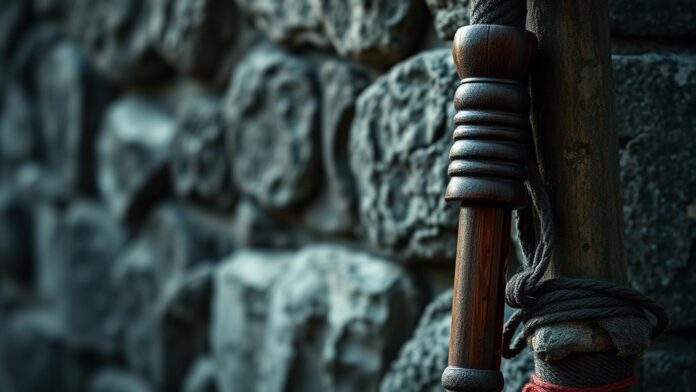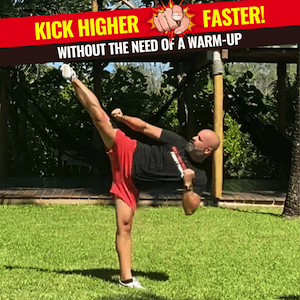You can effectively manage chronic conditions as an older martial artist by implementing three key strategies. First, adapt your training to focus on low-impact styles like Tai Chi and Aikido, and incorporate flexibility and conditioning exercises to maintain mobility. Second, build resilience through community support by engaging with local martial arts schools and participating in group classes for motivation and accountability. Third, manage physical limitations with technique by modifying movements to accommodate your needs and developing body awareness to recognize your limits. By exploring these strategies further, you'll discover how to tailor your training to achieve a fulfilling and safe martial arts practice.
Adapting Training for Chronic Conditions
With age, chronic conditions can become a significant concern for martial artists, making it vital to adapt training approaches to accommodate physical limitations.
As an older adult, you'll want to focus on low-impact martial arts styles, such as Tai Chi or Aikido, which can help manage chronic conditions by reducing strain on your joints while promoting balance and flexibility. Incorporating regular flexibility and conditioning exercises into your training routine can also help maintain mobility and alleviate chronic pain associated with aging.
To prevent injuries and manage chronic conditions effectively, prioritize warm-up and cool-down routines. Gradually increase your training intensity, focusing on bodyweight exercises that enable you to build strength sustainably, accommodating your physical capabilities.
It's also important to consult with healthcare providers before starting or modifying a martial arts program. They can help tailor your training approach to address individual health needs and limitations.
Building Resilience Through Community Support
Resilience is an essential component of a successful martial arts journey, particularly for older adults maneuvering the challenges of chronic conditions. Engaging with your local martial arts school can foster camaraderie and support, helping you manage chronic conditions through shared experiences and encouragement from fellow students.
Group classes provide motivation and accountability, creating a positive environment where you can feel empowered to continue training despite physical limitations.
Participating in community events allows you to forge connections, enhancing your sense of belonging and reducing feelings of isolation often associated with chronic conditions.
Online forums and discussions provide a platform for sharing knowledge, strategies, and insights, further strengthening community ties and promoting resilience.
You can also take advantage of mentorship opportunities within martial arts communities, enabling seasoned practitioners to guide newcomers and creating a supportive culture that benefits both mentors and mentees in managing health challenges.
Managing Physical Limitations With Technique
As you navigate the challenges of martial arts training as an older adult, managing physical limitations becomes a crucial aspect of maintaining a safe and effective practice.
To achieve this, focus on low-impact techniques, such as those found in Tai Chi and Aikido, which minimize strain on joints and can help manage chronic conditions. Implementing proper warm-up and cool-down routines also enhances flexibility and reduces the risk of injury, making training sessions safer.
Adaptive training methods, such as modifying techniques to accommodate physical limitations, allow you to maintain effectiveness without exacerbating existing health issues.
Developing body awareness during training helps you recognize your physical limits, enabling adjustments to prevent injury. Regular flexibility and strength conditioning exercises incorporated into your training routine can aid in recovering lost agility and maintaining mobility essential for effective martial arts practice.
FAQs
What Martial Arts Program Is Best for Older Adults?
You'll find that low-impact martial arts like Tai Chi, Aikido, and Brazilian Jiu-Jitsu are well-suited for older adults, as they promote balance, flexibility, and overall health without excessive strain on the body.
What Is the Best Martial Art for a 60 Year Old Man?
As you celebrate your 60th birthday, imagine yourself moving in harmony with Tai Chi's slow, controlled movements, which improve balance and flexibility while minimizing joint stress – a perfect match for a low-impact, healthy martial arts journey.
What Is the Best Martial Art for Longevity?
You'll find that Tai Chi is often considered the best martial art for longevity, as it combines slow, controlled movements with deep breathing and meditation, promoting balance, flexibility, and overall health while minimizing joint strain.
Can You Do Martial Arts With Fibromyalgia?
"Can you reconcile a body in pain with the pursuit of martial arts?" Actually, you can practice martial arts with fibromyalgia, but you'll need to choose low-impact styles, listen to your body, and adjust training intensity to avoid exacerbating symptoms.



